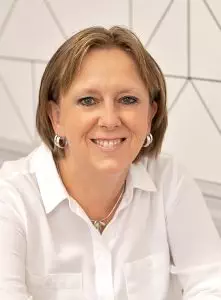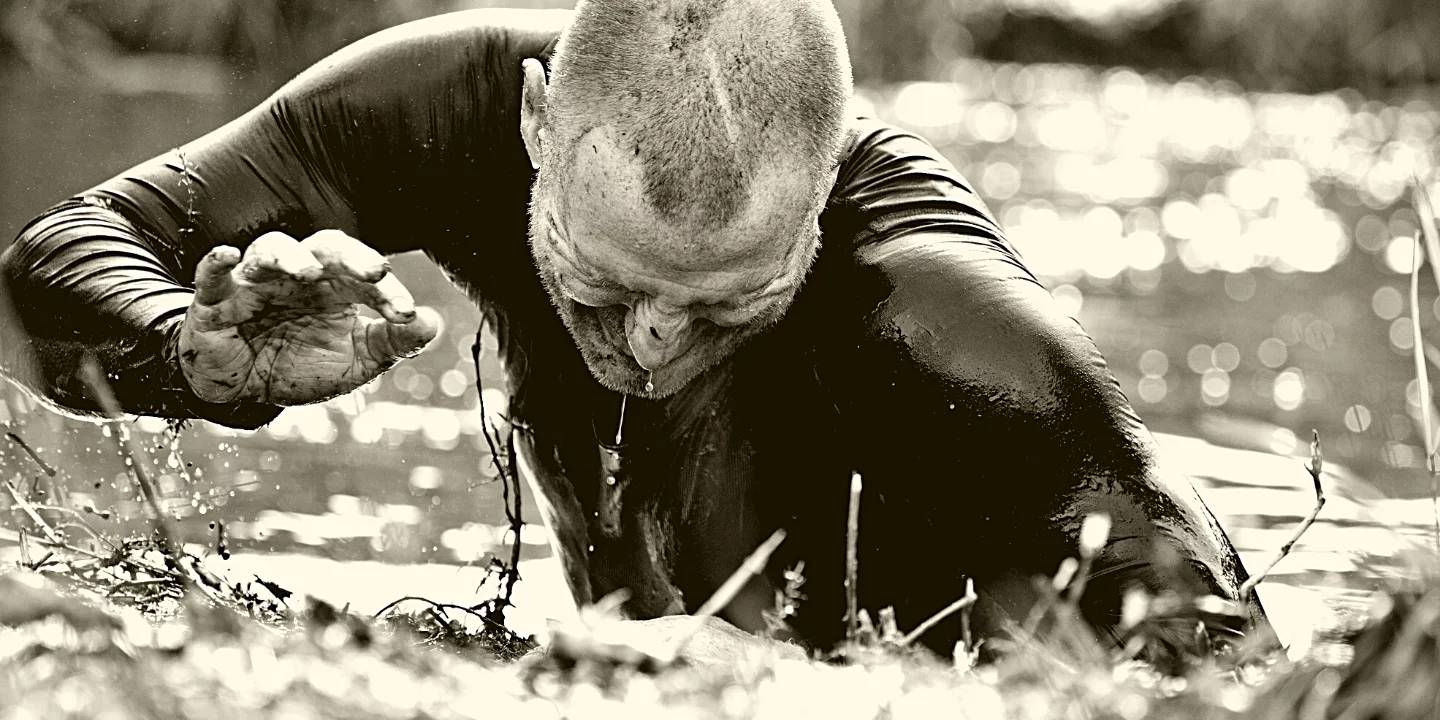professional development
How courageous is your leadership?
We have never needed courageous leaders more...
by Karen Amos
Leadership is all over the news. Firstly there's the Post Office scandal. Much of this will be new to many people, but the fact is, this is far from a new issue. I was first aware of it around 2010, as an acquaintance was one of the Post Masters in question. He ended up taking out a huge loan to patch up a financial hole, not of his making, or risk prosecution and lose the family business. The impact was devastating on his physical, mental and financial wellbeing. The situation was picked up and consistently reported on by media outlets such as Private Eye, Radio 4 and Panorama, but still no meaningful movement from either the Post Office, or indeed the government, despite them being well aware of this. People jailed, made bankrupt, family breakups and suicides. Still no-one stepped forward. Finally, a mainstream broadcaster ITV, created prime-time drama series and the government eventually commits to action.
Same with the ongoing situation with Ofsted inspections. It wasn't until the tragic death of Ruth Perry following her school's downgrading following an Ofsted inspection that a light was cast on what teachers, leadership teams and particularly Head Teachers have known for years - the process isn't fit for purpose. Untold stress and suffering within schools in the name of raising standards. Teachers and Heads reconciling themselves with feeling sick every week as an inspection was imminent and careers being wrecked, not to mention the toll on mental health. As with the Post Office scandal, this isn't 'just' the ruining of lives and livelihoods - people died.
So what's the cause of the problem? Tech? Comms? Process?
No, the cause lies with with leadership - specifically, cowardly, dishonest, unethical and self-serving leadership, which in truth is no leadership at all.
There are the leaders who focus on process, making sure everything can be monitored and that systems are in place. Those setting out the ‘business as usual’ mantra, when life is anything but. The leaders that force the perpetual direction of travel that involves people being asked to do more and more with fewer and fewer resources until those people break. Those priding themselves on being ‘decisive’, whilst never once pausing to look back and check where everyone else is on this journey. And if anyone’s lagging behind? - well, they need to get their backside in gear and quick. And finally, those leaders and business owners who seek to exploit the system, state, or people in order to make a quick buck.
Then there are inspirational leaders out there who ‘do the right thing’ by looking after their teams, clients and communities. These are the people who 'bend’ the rules where need be, provide reassurance and are understanding and empathetic to the needs of others. The leaders who understand the impact on those going through huge daily challenges such as the cost of living crisis and balancing home and work with pressures on childcare for example.
I believe we need strong, ethical leadership now more than ever and Authentic Leadership sets out the blueprint for this. The need for courage, vision, compassion and a strong set of ethical values. Above all, the ability to put these into positive action. As I’ve said before, Authentic Leadership isn’t, ‘Take me as you find me – warts and all.’ Anyone trying to lead a team with that attitude is, quite rightly, destined for failure. And it's certainly not 'fluffy bunny'. No, Authentic Leadership is the toughest thing you will ever do. It means having the courage to do what’s needed and the heart to do what’s right.
Here are a few coaching questions to get you started on checking how courageous your leadership style is...
- What do I stand for as a leader? What are my 'lines in the sand' I will never cross?
- Am I ever guilty of not following my own principles and ethics - and what causes this?
- How will I know when I'm 'doing the right thing'?
- What are the signs I may not be acting courageously as a leader - seen in myself and others? What impact does this have on me?
- What one thing could I put into place today that would ensure I was doing the right thing by others?
If you’d like to learn more about how to take a coaching approach to Managing Difficult Conversations and Effective People Management, we’ve just launched our Summer 2024 public courses.
Click on the link below to find out more:
Or why not EMAIL US, or book in an informal chat using the button below. We'll find out about the support you need and provide you with a no-obligation quote.
 Karen Amos is an executive coach and Director and Founder of BrightBird Coaching & Training. She supports business owners, managers and education leaders to get the best out of themselves and their teams. She brings a down-to-earth approach to improving working lives through better leadership, communication and working relationships.
Karen Amos is an executive coach and Director and Founder of BrightBird Coaching & Training. She supports business owners, managers and education leaders to get the best out of themselves and their teams. She brings a down-to-earth approach to improving working lives through better leadership, communication and working relationships.
Tel: 07714 855757 or email: [email protected]
Do you walk the walk, or are you just talk?
Do you walk the walk, or are you just talk?
By Karen Amos
I’ve been feeling challenged recently. What’s new you may ask? The world feels like it’s going to hell in a hand cart and to be honest, it’s hard to know where to direct your outrage.
I guess I’ve been challenged around my values. My ethics. What I stand for. And mainly that many people who say they stand for a certain thing, do nothing of the kind in practice. In fact, they overtly and cynically do just the opposite.
So yes, I’m talking about the current government (I won’t expand, as I don’t even know where to start), but also leadership around the world. Saying one thing – doing another.
But let’s stop a minute in our righteous indignation and look a little closer to home too. Let’s look at hype, at marketing and advertising. Then let’s look at our own and other’s behaviour around us, including in the workplace.
This reminded me of a phrase a work colleague, Ursula Wood of Wellbeing Umbrella used to say:
‘Just because someone says it, does not make it so…’
Indeed.
Talk is cheap and all to frequently nowadays, not challenged either. The fact is we can say anything we like, it’s a free country after all. So I can say I’m actually 21 again. There. Yippee! But I’m not, I’m 54 and no amount of saying it (or wishing for a bit more youthful vitality!) will make me so.
But this is where it all goes wrong. People say they’re ethical, honest, authentic (heaven save us from authentic!), caring, compassionate… of course they do. Who would ever proudly admit to being unethical, dishonest, a liar, a fraud?
The fact is though that unless we consistently back our words up with action – what we do – we are just that, frauds!
It’s an uneasy truth to bear. There are times when I have been that cowardly person, when I’ve been ‘economical with the truth’. Often because I was afraid of the consequences, but that’s by the by; these are the times I reflect upon and am most ashamed of myself. So if we are to be our best selves and leaders, the people we tell everyone we are, and judge others against, we must face up to these realities.
Funnily enough, my inspiration for this post comes not from disingenuous politicians (although they’re not exactly a rare breed, judging by current events), but from the amount of ‘coaching’ purported everywhere and by everyone at the moment. It’s trendy, it’s the thing to have, it’s a requirement and applauded in many sectors, including education.
As a coach, that really should be making my heart sing! So why not?
The problem is that everything appears to be named ‘coaching’ nowadays.
So, instructing, mentoring, advising, teaching, training and plain old directing… all become ‘coaching’ – but they’re not.
They’re also not ‘wrong’ or ‘bad’.
All these approaches have merit in the right situation. I use them all in my own practice. That’s how I give my clients most value.
It is however, vitally important that as a leader for example, if you say you take a coaching approach, you have a good look inwards. Do you actually coach, or are you just directing with a very loaded question? The former hands the control to the person being coached, the latter is a leader who hangs onto the control, but denies or disguises this as something else entirely.
As an example of coaching, here are a few coaching questions to get you started:
- What words would I use to describe myself and my values and against which I judge others?
- What evidence do I have that I practice these consistently?
- Would other people around me agree?
- Are there times my values become less ‘mandatory’ to me?
If you would like to find out more about coaching and how this differs from other approaches, check out our latest FREE Introduction to Coaching webinars.
Or our new Coaching Skills for Managers mini-programme:
Get in touch for a no-obligation chat if you'd like to find out more:
Tel: 07714 855757 or email: [email protected]
Karen Amos is an executive coach and founder of BrightBird Coaching & Training. She supports business owners and managers to get the best out of themselves and their teams. She brings a down-to-earth, practical approach to improving working lives through better leadership, communication and working relationships.
So you're a coach? That's like a football coach, right?
You’re a coach? That’s like a football coach, right?
By Karen Amos
‘You’re a coach? What, like a football coach?’ This is a regular response when people find out what I do for a living – and to be honest, it’s not a million miles off the mark.
So here’s my latest attempt to de-mystify coaching…
Like a football coach? – Erm, yes, in that a football coach is there to maximise the performance of the players to build a successful team and win matches. A good coach will help players maximise their strengths and recognise and overcome their weak areas.
So not like a football coach? – Well no – in that I don’t shout at people from the edge of a field in the cold and rain! I also rarely wear a tracksuit for my work - Oh, and my knowledge of football is limited to knowing who Kevin Keegan is and that Gary Lineker likes crisps!
Actually the main distinction is that good coaching is all about supporting people to work it out for themselves. This moves us from TELL – to – ASK.
Why not just give people the answer if they don’t know what to do?
Imagine you’re stuck – there’s a problem at work, maybe with a member of your team, or your work-life balance is going down the drain. You meet up with your friend after work and they ask how you are. ‘Terrible,’ you say, ‘The team aren’t meeting their goals and my boss is breathing down my neck and I’m shattered, but nowhere near getting to the bottom of my to-do list.’
‘Ah, you know what you need to do,’ says your friend in their best Harry Enfield impersonation, ‘You need to leave. Give them your notice tomorrow and tell them you’re not putting up with it any more.’
I’m guessing most of us have been on the receiving end of that kind of conversation at some time. Now think about what you feel like receiving this kind of ‘advice’. Listened to and understood? I doubt it. Likely to follow the advice? Usually not – I tend to find myself thinking, ‘what do you know about it?’ or variations on that theme and pull down my mental shutters ready to revel in a bit more self-imposed misery.
So let’s look at the coaching alternative. We don’t tell, we ask. Coaches dig down to what’s really going on – finding the root cause of the issue. Let’s face it, without getting that right, everything else is a sticking plaster solution. We then find out what the person actually does want. When we’re experiencing a painful situation, we’re all really clear on what we don’t want, but often less clear on what we do want. With a clear goal, the person is then able to set out clear actions to achieve that goal.
So in essence, a coach brings a safe space, where people can be heard, in confidence and without judgement, and be supported to find their own way out of any difficulties and build up their own skills and personal resources.
Coaches work with individuals and teams to identify the blocks that are preventing them from moving forward and set out new, positive goals and a vision for the future. They then give support to set out actions to make this a reality.
I’ll post some more soon on techniques I use as a coach and problems coaching can help resolve. In the meantime, next time you’re tempted to just tell someone what to do – why not pause for a moment, listen to them and ask them what they’d like to do instead?
If you would like to find out how BrightBird can help you build your performance and support your teams to remain positive and productive, get in touch for a chat or click HERE to book your no-obligation FREE Discovery coaching session.
We offer online video 1-to-1 coaching support from senior leadership to front-line staff and also team/group coaching.
Tel: 07714 855757 or email: [email protected]
 Karen Amos is an executive coach and founder of BrightBird Coaching & Training. She supports business owners and managers to get the best out of themselves and their teams. She brings a down-to-earth, practical approach to improving working lives through better leadership, communication and working relationships.
Karen Amos is an executive coach and founder of BrightBird Coaching & Training. She supports business owners and managers to get the best out of themselves and their teams. She brings a down-to-earth, practical approach to improving working lives through better leadership, communication and working relationships.
Overwhelm - taking those first steps out of the swamp...
Overwhelm - taking those first steps out of the swamp...
By Karen Amos
The problem with overwhelm is... well, it's overwhelming!
Yes, I realise that's pretty obvious, but if it's really that obvious, why don't we easily sort it out and feel more in control?
Because... yes, that's right - it's overwhelming. The Cambridge dictionary describes overwhelm as 'to be too much to deal with'. (1.) So there you have it - how can you deal with something, which by definition leaves you feeling as if you can't?
Overwhelm sucks us down and dulls our responses and behaviours, sapping your energy and confidence. It's a swamp land for your productivity and wellbeing.
So here's how to deal with the stuff that feels like it's too much to deal with...!
1. Accept there is no 'one-step, easy answer' to overwhelm
Overwhelm means different things to different people, at different times. There are often several contributing factors, each of which compound the other. This is why we can't often find a way through - and why we often don't even know where to start. Acknowledging what's going on for you - and importantly, making a conscious decision to change things for the better is a great start though.
2. If you don't know where to start, start in the easiest place
Because overwhelm then leaves us powerless in its grip, we often do nothing. We don't know what the 'best' thing to do is, or what the solution is. So we do the rabbit in the headlights routine. Often though, just taking one small step can start to lift us out of the swamp. And each step out, increases our capacity to gain control, energy and impetus. So don't wait for the whole solution, just take the one small, easy step you know will lead you in the right direction.
3. Overcome the fear of switching off
Whilst we know we would benefit from taking proper time out, this can actually feel pretty scary when you're under pressure. The problem is that trying to plough through is often counter-productive, leaving us even more exhausted, but the bogeyman of letting go can really hold us in its grip. Rationalising how you will benefit from even a short amount of time out will help you make that decision. Remind yourself for example, how much more productive you will be the next day if you turn off your smart phone and have an early night, or even just finish work at a normal time for once, to go do something nice with your loved ones.
4. Break tasks and activities down
If we see a large, complex or long-term problem, it's hard to know where to even start - and the positive feelings of achievement aren't so easily found as we try to plough our way through. Instead, break your goals/outcomes down into smaller steps that you can tick off frequently. That way you can see your progress and more importantly gain the feelings of satisfaction and control that come with this. This is even true of smaller, personal habits - e.g. saying you're going to do physical exercise/training 3 times a week can seem too much and mean you don't even start. However, saying you'll go to spin class on Monday evening, do a 30 minute run on Wednesday and a long walk at the weekend can much more easily be planned in - and ticked off each day.
5. Get your priorities right
When we feel so overwhelmed with our workload, there's a danger that we end up working on completely the wrong things. These often swing between the jobs (or people) who shout the loudest, or the things that are easiest and least risky. Neither of these necessarily are the right thing though. (And if you think this isn't you, just remind yourself about the times you've ended up doing the dusting rather than tackle a gnarly task! Yeah, of course, we'd all choose dusting as our new favourite hobby right?!) Instead, take a few minutes to check through everything that's going on and ask yourself:
- What could and should be dropped off my to-do list (or even completely off my radar) at this point in time?
- Are there any quick wins here, that will buy me more time and energy moving forwards?
- What's the most important thing here?
- What are the things that no-one would really notice if I didn't do?
- If I assume I don't have time or energy to do everything that's expected of me, what will I have to put down first?
- Where's the 'noise' coming from? Is this legitimately something I should be listening to? If not, how do I tune it out?
If you were only going to do one thing right now, I'd recommend taking a few minutes away to ask yourself some of these questions. Then take one step - just one - that will start to take you in the right direction and lead you out of the overwhelm swamp.
References:
If you would like to find out more about how you and your teams can improve their time management and productivity, whilst minimising stress and overwhelm, check out our new Positive and Productive online programme.
For schools
For Business and VCSE organisations
For an informal, no-obligation chat about how we can help you, call us on 07714 855757, or email [email protected].
 Karen Amos is an executive coach and founder of BrightBird Coaching & Training. She supports under-pressure leaders and managers to get the best out of themselves and their teams. She brings a practical, down-to-earth approach to improving working lives through better wellbeing, leadership, communication and working relationships.
Karen Amos is an executive coach and founder of BrightBird Coaching & Training. She supports under-pressure leaders and managers to get the best out of themselves and their teams. She brings a practical, down-to-earth approach to improving working lives through better wellbeing, leadership, communication and working relationships.
Workload – Is this the next Emperor’s new clothes?
Workload – Is this the next Emperor’s new clothes?
By Karen Amos
Exhausted. Overwhelmed. Inundated. This is what I’m hearing and seeing around me, from clients, associates and on social media.
There’s too much work to do and too little time to do it in. And yes, there are so many things going on right now, resulting in endless firefighting and over which we have very little control. Vast swathes of staff teams going off sick with various illnesses, of which covid is only one, as an easy example.
I get the feeling of helplessness that goes with this, but can’t help but think there are also many things we CAN do something about, but often don’t.
As we come up to the festive season, this is never more needed. What should for many be a time of holiday and celebration, becomes a source of stress, anxiety and overwhelm.
This is where our mindset comes in.
Working out what we can control or influence and not expending mental and emotional energy on the things we can’t, will ensure we expend our energy in the right way. The good old Stoics and latterly Stephen Covey hit this on the nail.
That’s only part of the story though and I’m on a mission to call this out. I’m going to be the little boy to the Emperor’s New Clothes of workload…
Here are the basic facts of the modern work-life as I see it:
1. We will NEVER complete all of our workload
2. We only have a finite amount of time and energy available to us
So let’s unpick this:
1. We will never complete all of our workload.
We don’t want to think we’re failing, so we try to fool ourselves that one day… one day… we will have ticked all the tasks off on our to-do lists. The fact is that there will always be more that could or should be done. We can always do more, make things better, build on the last job… on it goes.
2. We only have a finite amount of time and energy available to us.
Despite our best efforts there are only 24 hours in a day and you will never have the energy to consistently work huge proportions of this – not if you want to stay well that is! Even if you had 36 hour days, you’d only have a certain amount of energy you could expend.
So this is why I liken workload to the Emperor’s New Clothes. No-one is calling this out. So I am.
If we accept these 2 facts as accurate, we’re left with 2 choices:
1. Accept the inevitable frustration, despair, meltdown and ill health
2. Make a mindshift in how we think about and approach our work
Doesn’t seem possible? Then check out this example:
It’s the Monday, a week before your much needed holidays. All you can think of is getting away and forgetting about work for a week or so. So you have great intentions and have made a list of all the things you’re going to achieve from your to-do list before you go.
By the end of day one, you’ve made very little inroad. In fact, you’ve actually added to your list.
By mid-week, you’re feeling the pressure. You’re nowhere near getting those big chunky pieces of work out of the way and it really doesn’t look like you’ve time to do them before Friday.
By Thursday, you’re starting to cross off some things that ‘can wait’.
By Friday, you’re crossing off most things, deciding they’re probably not that vital and guess what? For many of them, you’ll never even add them back onto your list when you return!
Which just goes to prove that much of the issue isn’t about WHAT we’ve got to do, it’s WHAT OUR ATTITUDE IS to what we’ve got to do.
Of course, there are many tools and techniques we can effectively use to manage our time and workload. I teach many of these in my training programmes, but the fact is, these alone will not solve your workload issues.
For example, I’d always advocate that people use lists to help lighten your cognitive load amongst other things. The problem is that if we don’t approach what we put on our lists with the right mindset, we’ll find ourselves writing them on kitchen rolls they’ll be that long.
Let’s face it, none of us are going to be on our death bed saying, ‘At least I got to the end of my to-do list!’
The solution to this I believe, lies in having better quality conversations – with ourselves, our managers and our teams. A conversation that says, ‘OK, this work has just landed and I’m already at or over capacity with my workload.’
- What do I need to do myself?
- What do I need to be saying to others?
Here are some coaching questions to get you started:
- If I accept it’s impossible to get to the bottom of my to-do list – what needs to happen to ensure I can still do a good job and stay well?
- What if my wellbeing was as important as getting my jobs done?
- How can I work more collaboratively with others in a way that helps everyone?
- How can I work more efficiently?
- What happens when I prioritise my work better?
- What should my response be if someone comes to me with more work?
One of the things we can say could be to our managers, at what ever level. Easier said than done in some cases I admit, but what if we were to say, ‘I’m already at capacity. Can you help me work out what I can do and when?’
I’m not saying this is always the case, but I confess that on occasions in the past, I have been that manager. The one who was so overwhelmed that when another tranche of work came in, I did a ‘dump and run’ on my team.
The result? An over-worked and disgruntled team and myself, feeling like I’d sold my values down the river.
The thing is that the solution doesn’t necessarily mean appointing more staff – although how can we ever present a valid business case if we don’t acknowledge what’s there? Often though, more staff aren’t needed, just the right support, training and advice and some better communication.
In order to truly change things for the better we need to own up. To shout out if our workload isn’t possible, as there will never be a positive change if we don’t.
If you would like to find out more about how you and your teams can improve their time management and productivity, whilst minimising stress and overwhelm, check out our new Positive and Productive online programme.
For schools
For Business and VCSE organisations
For an informal, no-obligation chat about how we can help you, call us on 07714 855757, or email [email protected].
 Karen Amos is an executive coach and founder of BrightBird Coaching & Training. She supports business owners and managers who are feeling the pressure, to get the best out of themselves and their teams. She brings a practical, down-to-earth approach to improving working lives through better leadership, communication and working relationships.
Karen Amos is an executive coach and founder of BrightBird Coaching & Training. She supports business owners and managers who are feeling the pressure, to get the best out of themselves and their teams. She brings a practical, down-to-earth approach to improving working lives through better leadership, communication and working relationships.
Helping you move the rug when you’re stood on it – The power of coaching
By Karen Amos
My late and much-missed mentor used to have a brilliant phrase when I was bogged down in work issues – ‘You’re trying to move the rug, but you’re stood on it.’ It's a phrase I now use with many of my clients and the response is usually a resounding, ‘Yes! It’s exactly that!’
Often as a coach, this is exactly what I’m tasked to do – help my clients move that rug. So what’s the rug? It could be anything from managing an overwhelming workload, unpicking the intricacies of team dynamics to enable staff to work effectively, to prioritising which problem or issue to deal with first to develop a robust business. Whatever the scenario, I'm sure you know that feeling of pressure, but not knowing even where to start to resolve things, as every factor seems to depend on other factors for success.
Why can't we just sort this stuff out for ourselves? Basically, it’s due to the plate spinning that’s part of everyday working life. Here’s an example. Clients often come to me to improve their time management and work-life balance. If it was that simple, they wouldn’t need a coach. After all there are any number of books, apps and online videos with a plethora of tips and strategies.
So why is coaching successful when these things often fail?:
1. You need to identify the right issue to work on. If you don’t get to the root cause of the problem, you’ll continue to come back to the same issues. Whilst hints and tips are useful, they only address the symptoms of the problem. To gain lasting change, you need to find out what the real issue is. Using time management as an example, people often come to me to help manage their emails or to-do list, but the root cause could actually be a lack of confidence to say no, or other members of the team not doing their share.
2. Gives you a strategy for success – Once you’ve identified the root cause of the problem, coaching helps you put in place a strategy for the future as you’d choose it to be. Coaching helps you lift your head and gain a clearer picture of what a good solution to your problem would be. Again, an example would be that we would work on confidence, mindset and communication skills to enable you to be able to say no to unreasonable demands and put alternative actions into place.
3. Coach as accountability buddy – It’s easy to give in when the going gets tough isn’t it? We’ve all experienced this at some time or another, whether it’s learning a new language or embarking on a fitness drive. Knowing you’ve a regular meeting with someone who is going to ask about your progress is often a powerful motivator to stick with change, even when you feel like walking away from it all.
4. Independent feedback – Coaches often talk about ‘challenging’ their clients. This really isn’t as confrontational as it sounds, but we are able to question and dig deeper regarding your motives for your actions and also help you to test out scenarios in a safe space. Your coach is there for you only, so I will often ask my clients if it’s ok to give them some feedback on perhaps how they have presented themselves, or their communication skills. Completely independent feedback is often impossible to come by in our work and personal relationships and can be invaluable to help move you to more positive ways of behaving.
5. Walking toolkit – I often describe myself as a walking toolkit for my clients. Through my experience, training and development as a coach, I’ve picked up lots of concepts and tools that can help frame the world differently and bring some clarity and a way forward. This could be everything from decision-making tools, to understanding your personal interactions with others, to leadership approaches. As mentioned above, these aren’t used indiscriminately, but rather are tailored to your individual requirements, saving you having to filter out what you need from the overload of information out there.
Hopefully that’s given you a taste of why coaching can be such a powerful tool - supporting you make positive changes when you really can’t see a way out of the situation. Helping you to move that rug!
Karen Amos is an Executive and Professional Development Coach and owner of BrightBird Coaching & Training. She specialises in supporting managers and business owners to build positive and productive teams, through 1:1 and team coaching and training workshops.
If you would like to find out how BrightBird can help you build your performance and support your teams to remain positive and productive, get in touch for a chat and to book your no-obligation FREE 1-hour Discovery coaching session.
We offer online video 1-to-1 coaching support from senior leadership to front-line staff and also team/group coaching.
Tel: 07714 855757 or email: [email protected]
 Karen Amos is an executive coach and founder of BrightBird Coaching & Training. She supports business owners and managers to get the best out of themselves and their teams. She brings a down-to-earth approach to improving working lives through better leadership, communication and working relationships.
Karen Amos is an executive coach and founder of BrightBird Coaching & Training. She supports business owners and managers to get the best out of themselves and their teams. She brings a down-to-earth approach to improving working lives through better leadership, communication and working relationships.
- 1
- 2








